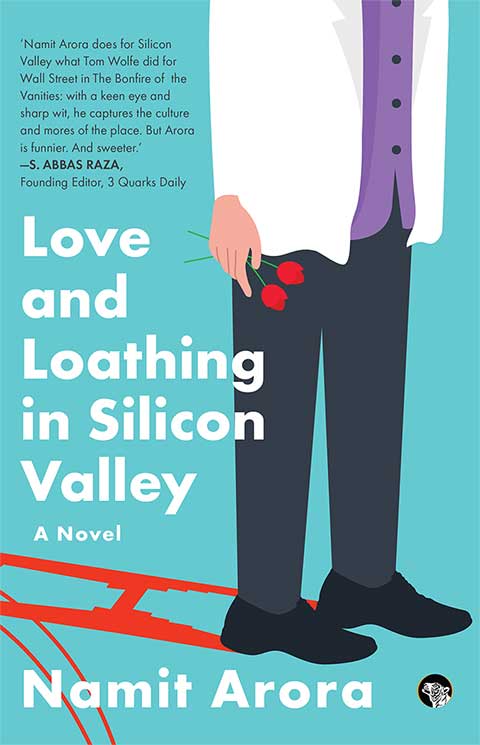| Index of articles from the Blog |
| Animals |
| Anthropology & Archaeology |
| Art & Cinema |
| Biography |
| Books & Authors |
| Culture |
| Economics |
| Environment |
| Fiction & Poetry |
| History |
| Humor |
| Justice |
| Philosophy |
| Photography |
| Politics |
| Religion |
| Science |
| Travel |
Books by
Books by
|
On the Ideology, Political Economy, and Prospects of Cryptocurrencies
By Namit Arora | Apr 2018 | Comments
|
(Cross-published on 3QD, Raiot, and Medium; a Spanish translation appeared in the journal Nueva Sociedad)
The cryptocurrency (aka crypto) movement is exciting—full of brainy people, venture capital, heady innovation, and high hopes. It behooves us to more clearly understand the animating ideology of the crypto movement. Should it ever succeed, where might it fit into our political economy and what might be its effects on society? And finally, just how likely is it to succeed? The Ideology of Crypto As I see it, the crypto movement, which gathered pace with bitcoin after 2009, is driven by a confluence of three types of instincts: (1) Anarchistic instincts, often left-leaning, that despise the State for its coercive authority, legalized corruption, misuse of taxes for war, power to censor and spy. Such instincts seek to weaken the State to make room for a Stateless, decentralized society of sovereign, self-organizing individuals. Cryptocurrencies, by using encrypted transactions and decentralized data storage, enable censorship resistance, anonymity, and tax evasion. Crypto-anarchists also hate Central and corporate banks (cryptocurrencies bypass them) and hope to rescue the Internet from the dominance of big corporations (like FAANG), towards a more open and decentralized Web 3.0. Satoshi Nakamoto, the mysterious creator of bitcoin, had strong anarchist leanings, as does Vitalik Buterin, 24, who founded Ethereum at 19 and wants ‘more open, free, egalitarian and efficient systems for human cooperation, including improving or replacing present-day corporations and governments’. (2) Capitalistic instincts, close to libertarian, that want true capitalism with a genuinely free market, instead of the one we have now: hampered by regulations seen as rigged, onerous, or inefficient, and dominated by monopolies and crony capitalists in cahoots with the State. Such instincts value the radical freedom that cryptocurrencies grant to a market-maker to issue his own coin, set his own transparent market rules, regulations, and monetary policy, with incentives from game theory driving the right market behavior, where people choose the value of goods and services that they freely exchange with others via smart contracts and without middlemen, preferably anonymously and beyond government interference and taxation. This vision also implies privatizing all State services, and sees markets, or algorithmic cost-benefit decisioning, penetrating more and more areas of our lives. Both Nakamoto and Buterin display strong free-market leanings. (3) Opportunistic instincts, which get people in every time and place to jump on the latest bandwagon, make a fast buck, or have fun making cool new things in an exciting space. Such instincts pull in a wide variety of people: techno-geeks, idiot savants, trend-riding entrepreneurs, ladder climbers, con men, hucksters, kooks, scamsters, boosters, futurists, problem solvers, etc. Among them are folks who launch crypto ICOs (so far 80+ percent of them scams), build crypto trading platforms, and serial evangelists like Don Tapscott who’ve made a career out of glibly boosting every next-gen tech as having revolutionary, world-saving and happiness-spreading potential, through which people will automagically learn to collaborate, self-organize, create unprecedented value, change the old laws of business, lift each other up, and sing kumbaya—with no consequences whatsoever for inane predictions. Wikinomics, wrote Tapscott in 2009, ‘may be the birth of a new era, perhaps even a golden one, on par with the Italian renaissance, or the rise of Athenian democracy’. WTF, right?! So the primary ideology that drives the crypto movement, mixing anarchism and capitalism, is anarcho-capitalism, with its strongest roots in the US. Its followers see it as a force for good that’ll usher in a golden era of growth, redistribution, and prosperity. A board member of The Bitcoin Foundation called cryptocurrencies a ‘decentralized revolution in individual freedom and financial sovereignty leading to a restructuring of global economics and power and a shift in favor of the people, rights, peace and liberty the likes of which the world has never imagined.’ To a small new breed of left-leaning crypto-anarchists like Buterin, cryptocurrencies and their blockchains permit the creation of decentralized and radically free markets run by open source software algorithms. As these markets spread, they will cause the withering away of the State and bring us to the Promised Land: an egalitarian, self-governing, classless society without borders—wet dreams of Marx, Engels, and Lenin. The Political Economy of Crypto
Crypto-anarchists are among the most privileged, globalized techno-elites who find it easy to grossly undervalue the State and vastly overvalue the ability of crypto economics and its unproven and dubious ‘consensus algorithms’ to solve real human problems. They tend to be idealistic young men who get off on mouthing fashionable anti-State nonsense while sucking on its teats. They won’t be caught worrying about how their vision would make up for all the good that most democratic States also provide—such as redistribution, regulation, equal civil rights, legal and social justice, security, labor laws, consumer protection, public services, constitutional checks and balances, being lender of last resort—each of which has been achieved, to the extent it has, after much collective struggle. If the State often corrupts free markets to privilege some over others and commits other wrongs, doesn’t history also bear witness to corruptions and wrongs in decentralized socioeconomic life? Before deciding which is worse, we should at least understand the long vision of anarcho-capitalists: no State; no fiat currency like USD, Pound, or Rupee; no Central Bank and no commercial banks regulated by it—only hundreds of ‘self-regulated’, anonymity enabling, tax resistant free markets and cryptocurrencies, mostly run by ‘smart’ algorithms with no pesky middlemen, fueling competition in existing and new areas of life—essentially, a Stateless libertarian free market society on steroids. We’re not angelic beings. In our flesh-and-blood world, even the freest of markets with clear rules will heavily shape outcomes by the social lottery of birth and narrow ideas of ‘merit’. Free market competition and property rights inevitably produce winners and losers—and class and culture wars. The winners accrue wealth for their families, clans, tribes, and use their power to shape knowledge, dominate others, and perpetuate their privileges. This too is what makes us human and is only worsened by scarce resources, economic competition, and rapid cultural change. Without the modern liberal State, such forces—often led by aggressive, predatory, and reactionary interests—will be far more vicious. Without redistribution through taxation, they’ll vastly amplify inequality and make our democracies even more oligarchic. This may seem obvious to most people but not to anarcho-capitalists, who fail to see why their techno-utopian ‘solution’ to the ills of the modern nation-state is like jumping from the frying pan into the fire. A very different idealism informs the real card-carrying Anarchists who, even as they reject the State, at least have the intellectual honesty and consistency to also oppose capitalism and the idea of private property, and promote the mindset of communes and cooperatives. No wonder they hate the incoherent mess that is anarcho-capitalism. For instance, here are two prominent living Anarchists on anarcho-capitalism, the intellectual ideology of the crypto movement: ‘Anarcho-capitalism, in my opinion, is a doctrinal system which, if ever implemented, would lead to forms of tyranny and oppression that have few counterparts in human history. There isn’t the slightest possibility that its (in my view, horrendous) ideas would be implemented, because they would quickly destroy any society that made this colossal error. The idea of "free contract" between the potentate and his starving subject is a sick joke, perhaps worth some moments in an academic seminar exploring the consequences of (in my view, absurd) ideas, but nowhere else’. [—Noam Chomsky] ‘To be honest I’m pretty skeptical about the idea of anarcho-capitalism. If a-caps imagine a world divided into property-holding employers and property-less wage laborers, but with no systematic coercive mechanisms ... well, I just can’t see how it would work. You always see a-caps saying "if I want to hire someone to pick my tomatoes, how are you going to stop me without using coercion?" Notice how you never see anyone say "if I want to hire myself out to pick someone else’s tomatoes, how are you going to stop me?" Historically nobody ever did wage labor like that if they had pretty much ANY other option.’ [—David Graeber] The Prospects of Crypto
Yet, many evangelists call public blockchains ‘A novel solution to the age-old human problem of trust.’ Among these votaries, ‘The claim being made is not that we can engineer greater levels of cooperation or trust in friends, institutions, or governments, but that we might dispense with social institutions altogether in favor of an elegant technical solution.’ This naïve assumption ‘betrays a worrying politics’ that believes it can replace politics itself with economic games. It must take a positivistic, scientistic, or at least a simple mind to presume that the problem of trust deficits, including those related to incumbent power relations of class etc., can be effectively tackled by an unregulated private sector and the free markets it runs via ‘code sans middlemen’. Except in failed States, most people may find it harder to trust this new intermediary with their money—the intermediary of a decentralized consensus algorithm in an unregulated blockchain, beneath a volatile currency, with few safeguards or corrective recourse, and painfully slow and unaccountable governance—than the named and regulated intermediaries they already trust and use today: banks, credit cards, PayPal, WeChat, all of which, unlike cryptocurrency networks, also provide a toll-free number for complaints; protection against loss, fraud, and user error; and transaction reversal. Moreover, behind the illusion of decentralized apolitical money lurks centralization by other means—as in mining, exchanges, leadership, new middlemen, infrastructure, etc.—and crypto projects continue to be very much in the grip of all-too-human and unreliable market makers. Add to this the unavoidable and deeply unappealing trade-offs that cryptocurrencies require in nearly all aspects of their functioning. They can fully realize only two out of their three primary goals: decentralization, security, scalability. Choosing decentralization makes them inherently slower, more expensive, less scalable, with worse user experiences and uncertain governance. A necessary trade-off, writes crypto expert Adam Ludwin, ‘This won’t fundamentally change with bigger blocks, lightning networks, sharding, forks, self-amending ledgers, or any other technical solutions.’ Furthermore, their code may be open source but it can be hacked, 51 percent attacks remain a major threat, and crypto assets are often lost or stolen, forever. Due to the very nature of crypto, it’s hard to imagine crypto exchanges ever offering what consumers now take for granted, such as this security assurance from a fiat brokerage firm: ‘Schwab will cover 100% of any losses in any of your Schwab accounts due to unauthorized activity.’ Integral to the design of cryptocurrencies are so many disadvantages—and so few advantages—that only those mainly interested in censorship resistance (or, say, need to solve the double spending problem) are likely to embrace apps built on them. No wonder crypto adoption remains very low—there is no killer app yet—and while this could change in the future, it’s not a given. Or take decentralization, an idea with merit but one that has become a silly mantra in cryptoland, as if it were always and ipso facto superior to centralized alternatives (recall that feudalism, casteism, racism, slavery, and patriarchy are all instances of decentralized oppression, now being disrupted by centralized Constitutions, Human Rights, and Law). With no evidence at hand, the orthodox even speak of an imminent wave of decentralized innovative businesses on the blockchain, but won’t they be eaten alive by nimbler actively-managed centralized competitors? There are exactly zero decentralized businesses in Silicon Valley, long obsessed with organizational efficiency, though they’ve long had the means to decentralize their own governance. Could it be that inappropriate decentralization impedes competitive innovation and business success? Instructive here is the failure of the original purpose of bitcoin, the best known cryptocurrency on blockchain. For very good reasons, bitcoin is little used as currency now (especially as a means of exchange), and is used more as ‘digital gold’. With 80 percent of the 21 million bitcoins already mined, the gini index of bitcoinlandia may be worse than that of every single country in the world. Pause to think about this. Bitcoin was meant to be a decentralized currency for everyday use by ordinary people, possibly replacing fiat currencies. However, just 4 percent of bitcoin addresses own 96 percent of all bitcoin while the richest one thousand people own 40 percent; furthermore, ‘the poorest 70 percent of bitcoin owners own less than 1.7 percent of all bitcoin [versus around 9 percent of all dollars in the US]’. This distribution of wealth and power is reminiscent of feudal times, turning bitcoin’s apparent nirvana of decentralization into a parody and dystopia. Bitcoin is akin to a land grab where the early ones gain disproportionately and, without lifting a finger, keep getting richer as demand for bitcoin surges but supply does not (by design). Are crypto bros agitating about this obscene new centralization of power? Instead, they cheer bitcoin price rises, even as they, bless their hearts, earnestly tweet about how crypto will save rural Africa by bringing banking to the unbanked, never mind that this can already be done perfectly well with fiat—lack of will, not tech, is once again the more common and far bigger hurdle. Bitcoin however is far from unique. Wealth concentration, price manipulation, and insider trading will plague every cryptocurrency that starts with unequal coin distribution to a few—but such wealth concentration is a feature, not a bug, to every crypto project team (surprise, surprise!). Nor does a private price-stable cryptocurrency seem likely. Anarcho-capitalists also tend to be worryingly archaic in insisting on non-inflatable cryptocurrencies, and in their gross overestimation of the odds of algorithmic governance outpacing a major Central Bank’s public trust and deliberative governance in a fluid economy liable to exception handling, as during the financial crisis of 2007/8. The untethered hopes and dreams of crypto fanboys in fact remind me of early AI, whose hopes and dreams, even decades later, remain just as outlandish. The speculative allure of crypto coins has corrupted too many minds and their sense of reality. Many crypto bros suffer delusions of grandeur of being Che Guevaras of the bitcoin age. When leading economists criticize it or governments crackdown on unregulated, anonymous trading, as they rightly must, the boyos of crypto come alive with howls and conspiracy theories about ‘the evil empire’ coming after them. They take it as yet another sign that they’re doing something right. When critics invoke earlier follies that once drew similar fervor (tulip mania, eugenics, behaviorism), crypto True Believers rush to dismiss the critics as akin to naysayers about earlier big innovations (Internet, railways, automobiles). Will there be a killer app for crypto soon? Perhaps the killer app is already known—anonymous trading—without which the crypto movement may well collapse. However, it’s worth noting that while cryptocurrencies may never rival major global fiat currencies, they will likely set a low bar for Central Bank management and serve as ‘crisis currencies’ for digital elites in States like Venezuela that face hyperinflation (but citing this as justification for crypto is like the NRA defending assault weapon ownership by citing situations when civilians used them for self-defense). Otherwise, unless regulated (not clear how), cryptocurrencies will continue to be havens for scamsters, criminals, money launderers, and tax evaders. At best, cryptocurrencies are a ‘revolutionary technology built on reactionary economics. That first part has blinded people to the second’. Perhaps the glitter of crypto coins has biased even our estimation of blockchain tech. As the hype clears and reality dawns, odds are that smart money and minds will sharply lower expectations of imminent revolucion. In time the crypto movement may be remembered mostly for its irrational exuberance—yet another of many movements in history that were overhyped but largely failed due to their own contradictions. That said, parts of the innovation currently driving crypto will surely live on and bring some conveniences into our lives, say, through blockchain projects sans cryptocurrencies, perhaps managed or regulated by trusted entities like governments. We may get another way to invest in startups via regulated security tokens and in regulated micro-markets via utility tokens. Crypto ‘stablecoins’, collateralized by already trusted and regulated fiat, may enhance P2P payments. A fallout of crypto may be new business entities whose governance is nearly as centralized as before but with greater data security, privacy, and consumer participation. Perhaps other social conditions, regulatory frameworks, and use cases will emerge in time—however remote this seems today—when the pros of certain cryptocurrencies (as currencies) may even outweigh their cons. One also hopes that the smarter boys of cryptoland will reassess their anarcho-capitalistic follies and join the unsexy but far more grounded means of fixing our broken world: antitrust action, informed citizenry, public debate, anti-authoritarian instincts, equal opportunity, humane safety nets for all. ___________________________ NB: After 20 years in Silicon Valley tech shops, I shifted my focus to the social sciences and the humanities. This piece owes much to my animated—and sometimes exasperating—conversations over many months with my good friend Aditya Dev Sood, who heads Startereum. Image sources: one, two, three | More writing by Namit Arora? |
Designed in collaboration with Vitalect, Inc. All rights reserved. |
|








